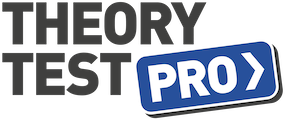The Driver and Vehicle Standards Agency (DVLA) has recently released a detailed update about cars used in driving tests. The new rules apply to any car – whether you’re taking the test in your own car or your instructor’s.
The key part of the update are answers to the many questions the agency receives about what modern car tech can be used in the test:
- Hill-start assist
- Cruise control (including adaptive)
- Speed limiters
- Parking sensors and cameras
- Lane assist
- Blind spot monitoring
- Traffic sign recognition.
The agency also lists the tech that cannot be used:
- Self-parking
- Tesla’s autopilot feature
- Your own sat nav.
All change
The DVLA has also issued guidance about tinted windows and dual controls, “as these are common queries we get”:
- Front windows must allow at least 75% of light through and the front side windows must allow 70% of the light through (read the full details here). Bear in mind that while there are no official rules for back windows, your examiner may cancel your test if they cannot see clearly out of the back because the glass is too dark.
- The guidance on dual controls is simple: If you’re using your own car, it does not need to have dual controls.
Do’s and Don’ts
These updates join a long list of rules about the car you use for your test. These include that your vehicle must have no warning lights showing, for example, the airbag warning light; have no tyre damage with each tyre meeting the legal tread depth; be fitted with an extra interior rear-view mirror for the examiner; and more.
Even the car you’re driving could lead to an instance cancellation on the day. The offending motors are:
BMW 218 convertible • BMW Mini convertible • Ford KA convertible • Smart Fortwo (2-door) • Toyota iQ • VW Beetle convertible • Any panel van (cars without rear seats or rear side windows).
To ensure your test isn’t stopped dad in its tracks before it’s even started, head to the official government guidance here to read up on the full list of rules.
Know Your Code

Double your chances of theory test success with Theory Test Pro. Sign up for free here.
